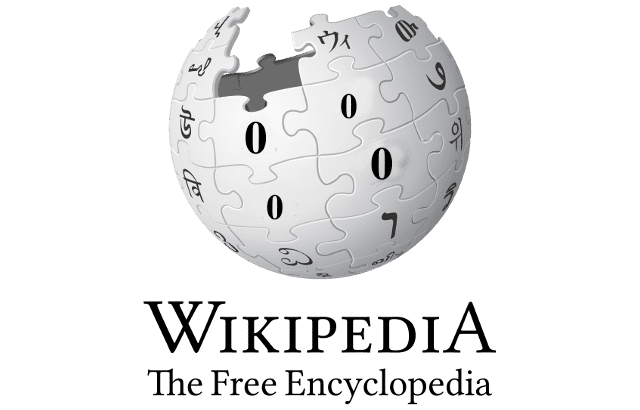Elon Musk has once again entered the digital information arena — this time by taking on Wikipedia with a new platform called Grokipedia, developed through his AI venture xAI. Musk describes Grokipedia as a “truth-driven” alternative to what he calls Wikipedia’s editorial bias. The early beta version, titled “Grokipedia 0.1,” is set for release within two weeks. The entrepreneur says his goal is to create a more factual, context-rich encyclopedia, free from what he perceives as ideological censorship.
What’s Happening & Why This Matters
In an announcement shared on X — the platform formerly known as Twitter — Musk wrote: “Version 0.1 early beta of Grokipedia will be published in 2 weeks.” The brief message triggered a wave of reactions online, as tech enthusiasts, academics, and journalists debated whether Musk’s latest project represents innovation or information manipulation. What’s clear is that the billionaire intends to redefine who controls public knowledge — and how it’s distributed.
The Vision Behind Grokipedia

Grokipedia builds on the foundation of Grok, the generative AI assistant integrated into X. Grok uses large-scale data scraping from X and other public sources to generate conversational responses. Grokipedia takes this model further, transforming AI chat into a living encyclopedia capable of updating itself automatically through real-time data ingestion.
According to xAI’s internal job listings for “Member of Technical Staff, Grokipedia – Search/Retrieval,” the system is designed to use large language models (LLMs) to process, verify, and structure information across various media formats — including text, video, and audio. Musk describes the project as one that will “remove falsehoods, correct half-truths, and add missing context,” effectively creating an AI-powered truth engine.
A Philosophical Showdown With Wikipedia
For more than two decades, Wikipedia has defined how the internet records and disseminates human knowledge. Operated by the Wikimedia Foundation, Wikipedia operates under a community-driven model where volunteer editors maintain pages through consensus, citation, and open verification. The site’s strength lies in its transparency — edits are logged, discussions are public, and every claim must be backed by reliable sources.

Musk sees that model differently. He has accused Wikipedia of hosting “politically motivated content” and lacking accountability. His rhetoric has intensified over the past year, especially after Wikipedia published entries about Musk’s controversial remarks and political affiliations. In several X posts, Musk described Wikipedia as “broken” and “agenda-driven,” arguing that truth cannot rely solely on volunteer editors.
In contrast, Grokipedia represents his effort to build what he calls a “self-correcting system.” The encyclopedia will operate through AI governance, continuously reviewing and rewriting its content using a blend of algorithmic verification and user feedback from X. Supporters view this as an innovative step toward AI-enhanced fact-checking, while critics see it as a dangerous concentration of control over global information.
The Critics Speak
Skeptics have raised ethical and technical concerns about Grokipedia’s premise. AI researchers warn that machine-learning systems, especially those without transparent oversight, are susceptible to bias replication — reinforcing inaccuracies rather than eliminating them. Critics also question whether Grokipedia can truly differentiate “truth” from interpretation without clear editorial standards.
On Reddit, users reacted swiftly, with one noting, “It’s scary to have powerful people profiting from the destruction of Wikipedia.” Others worry that Grokipedia could become an echo chamber reflecting Musk’s personal worldview, particularly given his direct involvement with the X platform and its moderation policies.
Digital rights advocates argue that while Wikipedia’s community model has flaws, it remains a transparent framework accountable to the public. Musk’s Grokipedia, by contrast, operates under private control and lacks clear governance mechanisms. As digital policy expert Dr. Emily Zhao told TechFyle, “When AI dictates knowledge, the line between curation and manipulation becomes almost invisible.”
AI, Truth, and Ownership
Grokipedia sits at the intersection of AI technology, politics, and digital ethics. Musk’s larger company, xAI, is already positioning itself as a competitor to OpenAI and Anthropic — firms that also use massive language models to power chatbots and reasoning systems. By extending Grok’s capabilities into an encyclopedia, Musk appears to be merging his social platform, data pipeline, and AI infrastructure into one ecosystem.
Analysts suggest that this move could reshape how future AI systems handle information sourcing. Unlike Wikipedia, which depends on human editors for verification, Grokipedia will rely on automated review systems — a model that could either increase efficiency or amplify systemic bias. Musk’s framing of Grokipedia as a “truthful alternative” appeals to those frustrated with perceived media bias, but its reliance on proprietary AI tools invites skepticism about impartiality.
Wikimedia Foundation representatives have responded carefully. In a public statement, they reaffirmed that Wikipedia remains an open, nonprofit project “committed to accuracy through transparency.” Their model, they argued, ensures “knowledge belongs to everyone, not to one company.” That difference — between open contribution and private control — defines the philosophical divide between Wikipedia and Grokipedia.
TF Summary: What’s Next
Musk’s Grokipedia represents an ambitious but controversial experiment in AI-driven knowledge curation. Its success depends on whether users trust AI more than human collaboration. The tension between transparency and automation could reshape not just how people access information, but how truth itself is defined in the digital age.
MY FORECAST: Expect xAI to use Grokipedia as both a testing ground and a statement of intent — a challenge to every institution that defines what we know, and how we know it.
— Text-to-Speech (TTS) provided by gspeech


